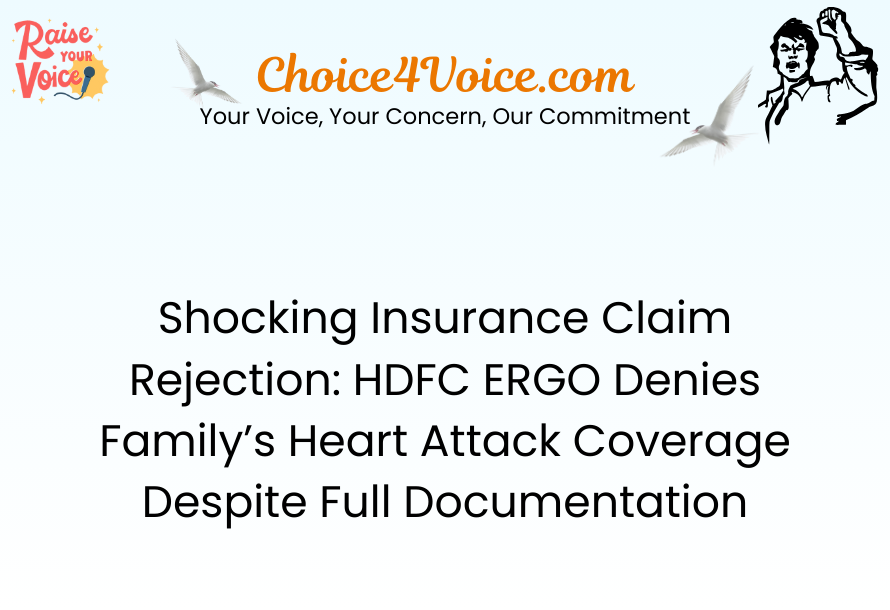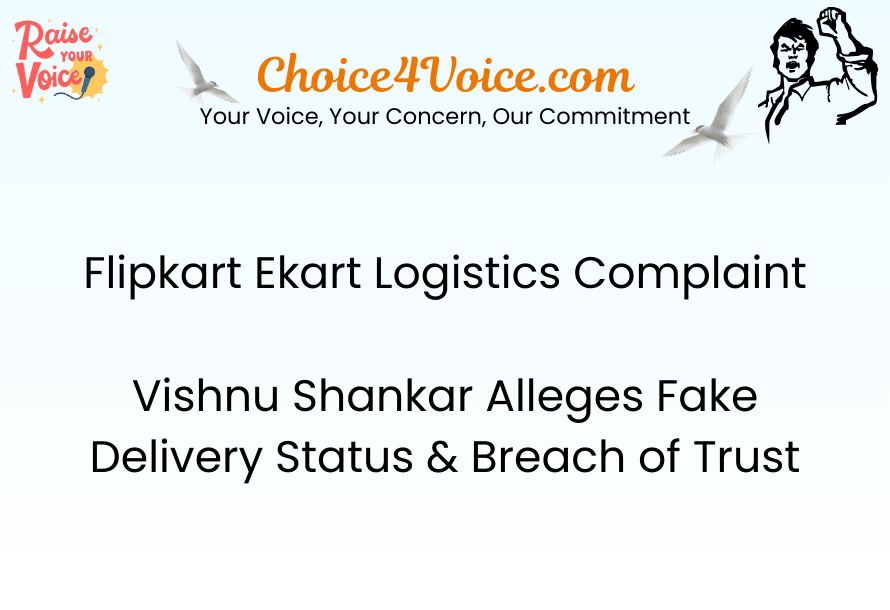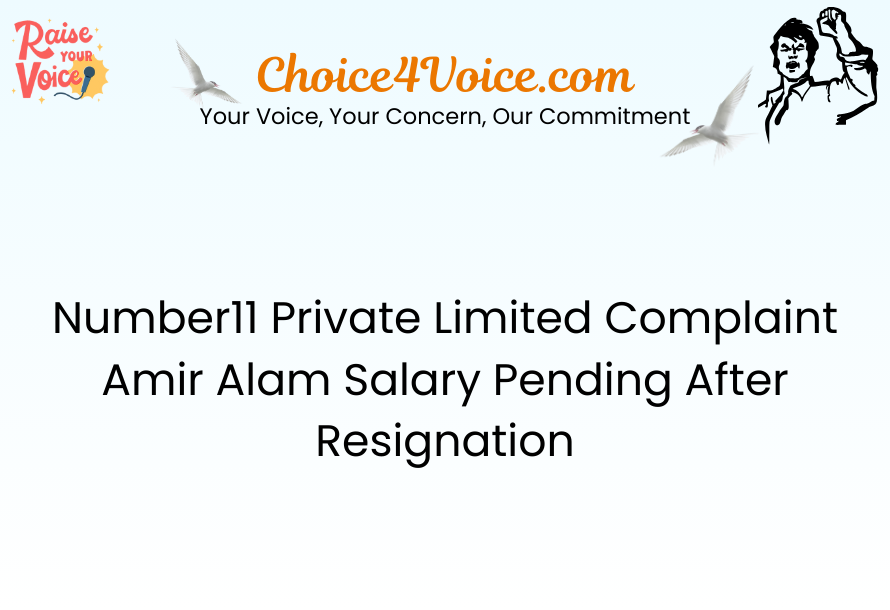If you’re experiencing this problem with this brand or any other company, submit your complaint and we may feature it on Choice4Voice.com.
Submit your complaint →Chandrasekhar Ravuri reveals how HDFC ERGO General Insurance rejected a claim after his uncle’s sudden heart attack, despite full documentation and verification. Learn why the claim was denied, what families must know about insurance policies, and how Choice4Voice.com is fighting for consumer rights.
Complaint Summary : HDFC ERGO Claim Rejection – Chandrasekhar Ravuri Exposes Shocking Insurance Denial After Uncle’s Death
| Complainant Name | Chandrasekhar Ravuri |
|---|---|
| Company Involved | HDFC ERGO General Insurance |
| Linked Bank | HDFC Bank |
| Insurance Policy Type | Accidental + Major Illness Cover |
| Key Policy Feature | Zero survival period |
| Incident | Sudden death of uncle due to heart attack |
| Claim Documents Submitted | Doctor’s report, death certificate, investigation records |
| Verification Done | Yes – HDFC ERGO visited home and hospital |
| Claim Status | Rejected |
| Reason for Rejection | No pathological/post-mortem proof of heart attack |
| Impact | Family left unprotected despite having insurance cover |
| Original Source | LinkedIn Post by Chandrasekhar Ravuri |
Full Complaint Write-up
Chandrasekhar Ravuri, an Operations Research Scientist at O9 Solutions, has raised a heartbreaking complaint against HDFC ERGO General Insurance.
According to Chandrasekhar, his uncle had taken a loan from HDFC Bank and also purchased an insurance policy from HDFC ERGO, which included:
- Accidental cover
- Major illness cover
- Zero survival period clause (to protect the family immediately in case of death)
Unfortunately, his uncle passed away suddenly due to a heart attack.
The family submitted all required documents doctor’s report, death certificate, and hospital investigation records. HDFC ERGO even sent a team to verify the details at their home and hospital.
Yet, despite full compliance, the insurance claim was rejected.
The reason? The company demanded pathological or post mortem proof of the heart attack documents that are often not available in cases of sudden natural deaths.
This decision left the family devastated. The very policy they trusted to protect them during a crisis failed when they needed it most.
Chandrasekhar’s post emphasizes critical lessons for all policyholders:
- For sudden deaths, insurance companies may demand lab reports or post-mortem records, even if a doctor certifies the cause.
- For accidental deaths, an FIR and post-mortem report are almost always mandatory.
- Families must be educated about specific claim requirements before it’s too late.
This case exposes the harsh reality of claim rejections in India, where fine-print clauses often override genuine human tragedies.
Q&A Section – Insurance Claim Rejection Explained
1. What was the core complaint against HDFC ERGO?
HDFC ERGO rejected a valid insurance claim for a sudden heart attack, despite the family submitting complete medical and legal documents.
2. What type of policy was involved?
An Accidental + Major Illness cover with zero survival period, meant to provide immediate financial support in case of untimely death.
3. Why did HDFC ERGO reject the claim?
The insurer insisted on pathological or post-mortem proof of the heart attack, even though a doctor’s certificate and death records were already provided.
4. Why is post-mortem proof often unavailable in heart attack cases?
In sudden natural deaths, especially at home or in emergencies, families rarely request a post-mortem unless there is suspicion of foul play.
5. What documents were submitted by the family?
- Doctor’s report confirming cause of death
- Death certificate issued by authorities
- Investigation and hospital records
- In-person verification by HDFC ERGO representatives
6. Did HDFC ERGO conduct verification?
Yes. Their officials visited both the hospital and the family’s home to confirm authenticity.
7. What role did HDFC Bank play?
HDFC Bank was linked as the loan provider, while HDFC ERGO provided the insurance cover meant to secure the loan in case of death.
8. What does “Zero survival period” mean?
It means the insurance benefit should be paid immediately after the insured’s death, without requiring survival beyond a certain number of days.
9. Can insurance companies legally demand post mortem proof?
Yes, if such a requirement is hidden in the policy terms and conditions, but it often comes as a shock to families.
10. What is the impact of such claim rejections?
Families face financial distress during already difficult times, often losing faith in the insurance system.
11. Are sudden natural deaths commonly rejected?
Yes. Many insurers use the lack of pathological/post mortem evidence as grounds for rejection, even with valid doctor certificates.
12. What is the difference between accidental and natural death claims?
- Accidental death → Requires FIR and post-mortem.
- Natural death (like heart attack) → Often requires pathological proof.
13. What could the family have done differently?
Unfortunately, very little. Unless a post-mortem was conducted, insurance companies can exploit this loophole.
14. What lessons can policyholders learn?
- Read policy fine print carefully.
- Ask insurers for a list of mandatory claim documents in advance.
- Inform family members about these requirements.
15. Can the family appeal against this rejection?
Yes. They can:
- File a complaint with the Insurance Ombudsman,
- Approach the IRDAI grievance cell,
- Consider legal action against the insurer.
16. How common are insurance claim rejections in India?
Reports suggest 15–20% of claims are either delayed or rejected due to documentation loopholes or fine-print conditions.
17. Does IRDAI have rules for claim settlement?
Yes. As per IRDAI guidelines, insurers must process claims fairly and transparently within 30 days of submission.
18. What should consumers do before buying insurance?
- Ask for written claim requirements,
- Compare insurers’ claim settlement ratios,
- Read customer reviews on claim experiences.
19. How can families protect themselves against such shocks?
Keep a claim preparedness checklist and ensure at least one family member knows all policy requirements.
20. How can Choice4Voice.com help in such cases?
By publishing unresolved complaints publicly, Choice4Voice.com puts pressure on insurers and ensures families’ voices are heard at a national level.
Final Note – Why Choice4Voice.com Exists
The case of Chandrasekhar Ravuri’s uncle highlights a harsh reality insurance policies often fail families when they need them most.
At Choice4Voice.com, we are committed to ensuring that no consumer is left unheard. Our mission is simple:
- Publish genuine complaints when companies fail to respond,
- Expose unfair practices in banking, insurance, telecom, and other sectors,
- Give consumers a larger platform to fight back collectively.
💡 If you or your family have faced an insurance claim rejection, loan issue, or unresolved banking dispute, don’t stay silent.
👉 Submit your complaint to Choice4Voice.com today, and let us amplify your voice to reach regulators, companies, and the public.


